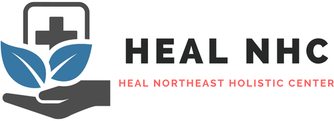Nasal Airway Obstruction? Improve Your Breathing With Nose Surgery
Do you often find it difficult to breathe? Are you worried about having an obstruction on your nasal passage? For various reasons, nose surgery is necessary to improve and restore your nasal airway function.
Injuries, previous surgeries, aging, and other structural causes may result in airway obstruction. When this happens, you may experience difficulty in breathing which directly affects your lifestyle and overall health. Luckily, several nasal airway procedures can help you get that nose you always wanted.
What Is Nasal Airway Surgery?
Our nasal cavity is a tunnel-like passage that extends from the nostrils to the tip of the throat. Here, you can find several bones, soft tissues, and cartilages necessary for your nasal stimuli to perform its functions. When a person experiences an airway obstruction, several nasal stimuli cannot work well, causing breathing problems, limiting your day-to-day activities.
Nasal airway surgery is a combination of cosmetic and surgical procedures that aid in repairing structural problems along the nasal cavity. The treatment involves an invasive process which will depend on the treatment procedure of your choice. There will also be a gradual recovery time that will take about a few days to a week to recover fully. Your doctor will give you several aftercare procedures that you need to perform after your surgery.
Your doctor at Rhinoplasty Sydney Cost clinic will also require follow-up visits to evaluate your progress. He or she will perform several tests from breathing assessments, patient comfort, and analyzing potential problems. Complications can develop during or after the surgery, but with early detection and proper response, your doctor will be able to avoid worsening the condition.
Types of Nasal Airway Surgery
Having the necessary nose surgery procedures is essential to promote patient comfort and regain your capacity to perform tasks. However, some types come with potential risks and serious complications. Here are the nasal treatment options suggested by the AU Rhinoplasty Sydney surgeons that you can consider before making your choice of nasal airway surgery.
-
Ethmoidectomy
This nose surgery focuses on the removal of a part of the ethmoid bone. You can find your ethmoid bone at the top of your nasal cavity, making up the ethmoid sinus. During an ethmoidectomy, you will remove the partitions between your ethmoid sinuses to create a larger sinus cavity. By doing so, the drainage along your nasal passage will improve and prevent chronic sinus problems.
-
Nasal Polypectomy
In a nasal polypectomy, the surgeon will remove the polyps in your nasal passages. These polyps are noncancerous swellings in your nose that are responsible for airway obstruction.
-
Septoplasty
 A nasal septum is a structure that you can find inside your nose. It separates the nasal cavity into its left and right areas. A person with a deviated septum experiences difficulty breathing because there is a displacement within their nasal airways. With a septoplasty procedure, there will be a correction within the deviated nasal septum and other septal deformities that cause airway obstruction.
A nasal septum is a structure that you can find inside your nose. It separates the nasal cavity into its left and right areas. A person with a deviated septum experiences difficulty breathing because there is a displacement within their nasal airways. With a septoplasty procedure, there will be a correction within the deviated nasal septum and other septal deformities that cause airway obstruction.
-
Tumor removal
As its name indicates, tumor removal involves the excision of a present tumor on your nasal cavity. The reduction of the mass helps remove airway obstruction and improves patient comfort.
-
Turbinate surgery
Nasal turbinates are the shell-shaped vessels and tissues that you can find along your nasal passage. These networks of vessels are responsible for filtering the air you inhale and projects out into your nasal cavity. Sometimes, a nasal turbinate can swell and become inflamed. An increase in the size of turbinates can cause airway obstruction, reducing patient comfort. A nasal turbinate surgery helps reduce the size of these turbinates to enhance airway function.
Additional Nose Surgery Procedures
Besides the above nasal surgery procedures, your doctor may require additional cosmetic procedures to improve your nasal airway. These include the following:
- Rhinoplasty
A rhinoplasty procedure helps in reshaping and resizing your nose. It is popularly known as a “nose job.”
- Sinus Surgery
This type of surgery involves the widening of your sinus passages to facilitate proper drainage to your nose.
Why Should I Have A Nasal Airway Surgery?
Nasal airway surgeries help treat any structural problems and damages that concern your nasal cavity. A diseased nasal structure is responsible for blocking the airflow through your nose. When a patient has an airway obstruction, several problems arise, such as chronic mouth breathing, headaches, sleep apnea, and nasal infections. A nasal airway surgery is necessary if your doctor sees that other treatment options would not help your condition.
Benefits of Nasal Airway Surgery
- Improves breathing
When there is a blockage on your nasal passages, there will be a reduction in the airflow. Nasal obstruction can cause a constant feeling of congestion and stuffiness, which is uncomfortable. Through surgery, an improvement in the nasal passages will promote patient comfort.
- Solves sinus problems
Sinusitis begins when there is an inflammation of the paranasal sinuses. Frontal, maxillary, and ethmoid sinusitis can cause severe pain in your facial muscles. With the correct nasal treatment options, it is possible to get rid of sinusitis for good.
 Aesthetic and cosmetic enhancement
Aesthetic and cosmetic enhancement
Although nasal surgery’s primary purpose is to improve airway function, it can also enhance facial features. Elements of rhinoplasty are necessary to reconstruct your nose’s form, which goes hand in hand with boosting external appearance. For better cosmetic results you can visit the page of www.dralanevans.com.au/facelift-sydney to read more.
- Promotes sleep quality
Other than diet and exercise, sleep is an essential factor in achieving a healthy lifestyle. If you are having trouble breathing, you may experience frequent disruptions, which influences your sleep quality. Not having a proper sleep-wake cycle can increase heart disease risks, mental health concerns, and your overall health. Nose surgery can eliminate airway obstructions and provide the patient comfort during sleep.
- Prevents upper respiratory infections
A patient who is experiencing difficulty in breathing will force himself to breathe more often than necessary. Upper respiratory infections can begin when viruses enter the nasal passage. When the patient continues to breathe forcefully, the nasal turbinate fails to filter the airways’ particles.
- Reduces oral health concerns
Sometimes, when a patient with a clogged and stuffy nose breathes, they facilitate breathing through their mouth. Several oral concerns may arise when this happens, such as tooth decay, bad taste, and bad breath.

